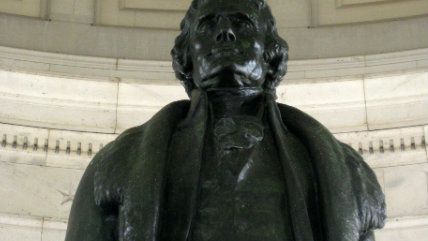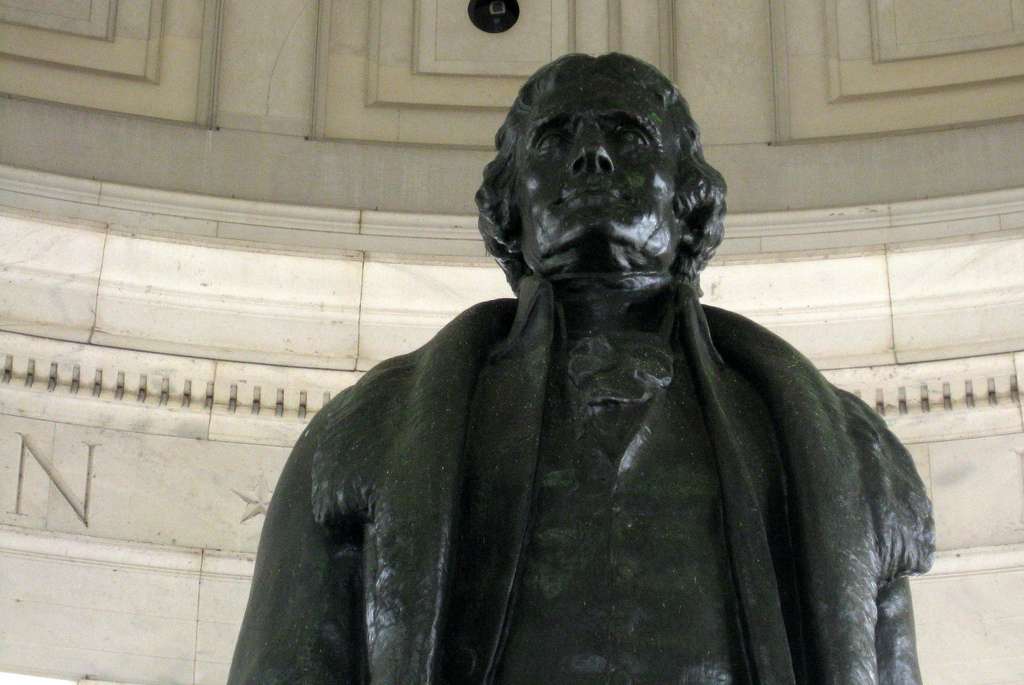Revisiting the U.S. Constitution
Why should libertarians celebrate the blueprint that made powerful government possible?


I am mystified that so many libertarians still see the U.S. Constitution as a landmark achievement in the struggle for liberty. On principle alone, they should have become wary in time. A document that is adored at virtually every position in the political firmament should arouse suspicion among libertarians.
Moreover a smattering of historical knowledge should have been enough to turn suspicion into outright skepticism. The Constitution was not the first constitution of the United States. Under the Articles of Confederation (for all its faults) the central quasi-government had no power to tax or regulate trade. Under the second constitution the new government assumed those powers with a vengeance and more, including the express power to grant patents and copyrights and unspecified powers, such as the power of eminent domain. You'll not find this power to steal property enumerated in the document proper, but thanks to the takings clause of the Fifth Amendment (part of the "Bill of Rights"), which feebly limited the assumed power, we know it is there. Considering this historical context alone, how could a libertarian be in love with such a document?
The push for a new constitution came from men who openly complained that America's problem lay in too little, not too much, government. "The evils suffered and feared from weakness in Government have turned the attention more toward the means of strengthening the [government] than of narrowing [it]," James Madison, father of the second constitution, wrote to Thomas Jefferson. "It has never been a complaint agst. Congs. that they governed overmuch. The complaint has been that they have governed too little," James Wilson added.
Further historical investigation reveals that the handiwork of Madison and Alexander Hamilton (not a promising parentage for a libertarian) was put over on the American people by dubious means. The federal convention in Philadelphia was called for the express purpose of amending the Articles. Under the prevailing rules, any amendment would have to be approved unanimously by the states. But once assembled, the convention tossed out the Articles and started from scratch, working from Madison's centralizing scheme. Moreover the rules for ratification were changed: only nine states would be needed to ratify. And if that were not bad enough, the misnamed Federalists handicapped the Anti-Federalists during the ratification debates with their control of the mail and newspapers.
Little wonder Albert Jay Nock, in Our Enemy the State, called the Philadelphia convention a coup d'etat.
Speaking of the ratification debate, isn't it strange that libertarian constitutionalists ignore the most libertarian activists and writers of the day—the Anti-Federalists—to keep their narrative intact? That alone should make one suspicious. (No, the Bill of Rights did not fully address the Anti-Federalists' objections.) Lysander Spooner, author of "The Constitution of No Authority," is ignored as well. (Randy Barnett is an exception, though I think his attempt to give the Constitution a Spoonerian defense fails.)
The eminent historian Gordon S. Wood shed even more unflattering light on the Constitution in his in his magisterial The Radicalism of the American Revolution. Wood shows that as the 1780s wore on, the revolutionary leaders, Hamiltonian and Jeffersonian alike, were unhappy with how things were turning out. Both sides had hoped that the people would embody classical republican values and put the general welfare over their particular financial interests. To their dismay, people were more interested in improving their economic well-being than it contributing to the new nation's good.
The Hamiltonians were especially upset that the public was taking its egalitarian, anti-aristocratic attitudes to such great lengths. The Hamiltonians did not expect the common people to govern themselves. Rather, they (that is, white males) were supposed to elect as their representatives detached wise men who were immune to the vicissitudes of the marketplace.
Democratic participation by common people was more acceptable to the Jeffersonians, but like the Hamiltonians, they lamented the preoccupation with commercial self-interest and the use of state legislatures to secure it. "By the 1780s," Wood wrote, quoting Yale College President Ezra Stiles, "it was obvious that 'a spirit oflocality' was destroying 'the aggregate interests of the community.'" Government had been envisioned as an above-the-fray enlightened referee that balanced competing particular interests and served the general welfare. Instead it had become an auction house.
What to do? Convene a federal convention and try again. And that's what they did.
Those who wanted a new constitution reconciled themselves to the fact that people would inevitably put their own "narrow" interests first. "Madison and others were now willing to allow these diverse competing interests free play in the continent-sized national republic created by the new Constitution of 1787," Wood wrote.
But Madison and the Federalists … were not modern-day pluralists. They still clung to the republican ideal of an autonomous public authority that was different from the many private interests of the society…. They now knew that [quoting Madison's Federalist 10] 'the regulation of these various interfering interests forms the principal task of modern Legislation,' but they also hoped that by shifting this regulation to the national level these private local interests would not be able to dominate legislation as they had in the states and become judges in their own causes.
The advocates of the new constitution believed that a central government could play the umpire's role, Wood added, "because the men holding office … would by their fewness of numbers be more apt to be disinterested gentry who were supported by proprietary wealth and not involved in the interest-mongering of the marketplace."
This point was critical. Common people were preoccupied with making a living. But those who were suited to govern did not have to work and therefore only they could be counted on, first, to ascertain the general interest and, second, to work unfailingly to achieve it. Hamilton made this argument even though he had to earn his living as a lawyer. When this was pointed out, he replied that lawyers were different from self-interested merchants, mechanics, artisans, and farmers. According to Hamilton, Wood wrote, "being a lawyer was not an occupation and was different from other profit-making activities." Lawyers and other professionals, Hamilton said, "truly form no distinct interest in society" and thus can be "an impartial arbiter" of the everyone else's claims. Anti-Federalists scoffed at this claim, understanding that no ruling class could be expected to be disinterested.
This should be enough to make libertarians wary about the second constitution. But there's more. Madison and the other centralizers believed that what was missing in American government was amonarchical element. The revolutionary leaders were happy to be rid of the British monarchy, but they came to believe, in light of what I've described above, that perhaps they had thrown the baby out with the bathwater. "Madison," Wood wrote, "expected the new national government to play the same suprapolitical neutral role that the British king had been supposed to play in the empire. In fact, Madison hoped that the new federal government might restore some aspect of monarchy that had been lost in the Revolution…. That someone as moderate and as committed to republicanism as Madison should speak even privately of the benefits of monarchy adhering in the Constitution of 1787 is a measure of how disillusioned many of the revolutionary gentry had become with the democratic consequences of the Revolution." (Later, the Madisonians saw the judiciary as playing this neutral role.)
Thus, Wood writes, "In place of the impotent confederation of separate states that had existed in the 1780s, the Federalists aimed to build a strong, consolidated, and prosperous 'fiscal-military' state in emulation of eighteenth-century England, united 'for the accomplishment of great purposes' by an energetic government composed of the best men in the society."
Let this all sink in: the prime movers of the second constitution sought to reintroduce hierarchy, aristocracy, and even elements of monarchy in order to rein in the radical social and political egalitarianism that had made the American Revolution unique in world history. We libertarians of course would have rejected the patricians without fully embracing the plebeians. After all, aristocratic rule versus government as egalitarian dispenser of economic favors is a false alternative.
Wood emphasizes that things could have turned out worse. "The Anti-Federalists lost the battle over the Constitution," Wood wrote. "But they did not lose the war over the kind of national government the United States would have for a good part, at least, of the next century. Their popular understanding of American society and politics in the early Republic was too accurate and too powerful to be put down— as the Federalists themselves soon came to appreciate. Even the elections for the First Congress in 1788 revealed the practical realities of American democratic life that contradicted the Federalists' classical republican dreams of establishing a government led by disinterested educated gentlemen."
But in time, despite setbacks here and there, the Federalists and their successors prevailed. In many respects the second constitution fulfilled its illiberal purpose. Should libertarians celebrate the blueprint that made powerful government possible?
This piece originally appeared at Richman's "Free Association" blog.
